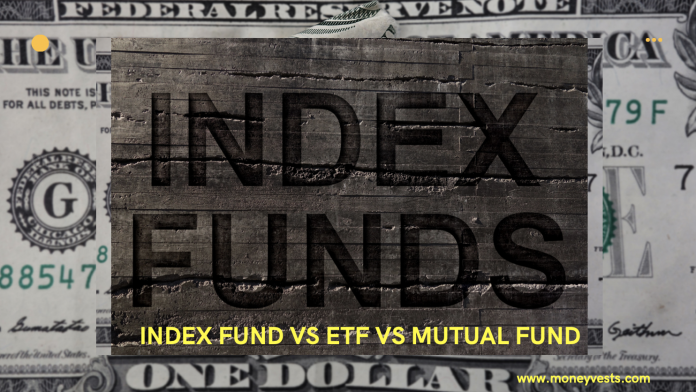Index Fund Vs ETF Vs Mutual Fund
When investing, you may be wondering if you should use an index fund or an etf. There are many benefits to both, but each has its own set of drawbacks.
In this article, you will learn what makes each type of investment attractive to different investors.
You will also discover how to select the right one for your needs. If you want to make sure you’re investing wisely, you should consider learning about index funds and etfs.
Investing in index funds
Investing in index funds can help diversify your portfolio without taking too much risk. These funds tap into different market sectors or support specific industries, which means you can minimize the risk of investing in individual stocks.
When investing in index funds, however, it is important to keep in mind your short-term and long-term goals, as well as the total costs.
Index funds aren’t for everyone, and they may not be the right choice for all investors.
The first step is to choose an index fund that tracks the performance of a specific index.
For example, an index fund that tracks a particular sector might be better suited for a new investor than one that has years of experience investing.
It’s also important to determine the risk tolerance of the investor. Some index funds are considered low-risk, while others may have higher risks. It’s important to ask the provider if they have other index funds for you to choose from.
Once you’ve determined which index fund to invest in, you need to decide on a strategy. You can choose to do it yourself, or seek help from a professional. To DIY, you’ll need to open an online brokerage account.
For automated investing, you can use robo-advisors. But whether you use index funds yourself or hire a broker, consider the goals you have and the amount of risk you’re willing to take.
Investing in etfs
Before you invest in ETFs, you should learn how to use them effectively. ETFs are a popular and inexpensive way to build a diversified portfolio, and they are great for beginners and experienced investors alike. They offer a low-risk way to invest in the market’s trending sectors without having to pick individual winners.
They also offer a lot of flexibility in investment strategies, including making ad hoc investments in funds with good fundamentals and reasonable prices.
Investing in ETFs is easy, and all you need is a brokerage account and the cash you wish to invest.
Your broker will open your account, and you will then choose which ETFs to invest in. You will then select how many shares you would like to purchase and submit your buy order.
There are several types of ETFs. Some track the price of a specific commodity. Other funds invest in raw materials such as gold. Commodity ETFs invest in commodities like oil, copper, and gold.
Others invest in companies that manufacture or process commodities. You can also invest in currency ETFs to get exposure to the foreign exchange market. The best way to invest in a particular commodity depends on your objectives.
Investing in mutual funds
Mutual funds are an excellent way to diversify your investment portfolio. These investments carry risk and may lose some of the money that you invest.
The values of individual securities within a mutual fund may fluctuate, and dividends or interest payments may change. It is important to understand the risks of each type of fund.
The prospectus of a mutual fund can provide more information about specific risks associated with a fund. While investing in mutual funds is a wise choice for many people, it is not appropriate for those with limited experience.
Mutual funds pool the money of many investors, and they invest that money in a wide variety of assets. Investing in mutual funds can be a safe, low-risk way to gain exposure to the stock market and other asset classes. However, there are some things to consider before you invest. Here are some common mistakes to avoid:
Capital gains and income are taxes that you must pay when you sell your shares of stock in a mutual fund.
Depending on how long you have held the investment, you will either receive a dividend in the form of cash, or you may choose to have the dividends automatically reinvested.
The money you receive will be used to purchase more shares of the fund, and you will earn a higher profit. But remember that you are still responsible for paying taxes on capital gains, and you can’t avoid them.
Conclusion
We hope you enjoyed this article… What are your thoughts?
Please feel free to share this article!
Fact Check
We strive to provide the latest valuable information for our readers with accuracy and fairness. If you would like to add to this post or advertise with us, don’t hesitate to contact us. If you see something that doesn’t look right, contact us!





